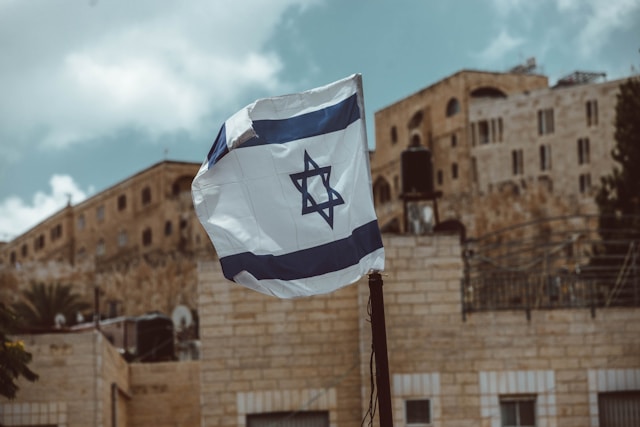Dozens of rockets launched from Lebanon after Israeli drone kills a senior Hezbollah figure, escalating border tensions
In a dramatic escalation, Hezbollah unleashed a barrage of 45 rockets on northern Israel Thursday after an Israeli drone strike killed Abbas Ibrahim Hamza Hamada, a key Hezbollah operations officer, in southern Lebanon. The strike and subsequent rocket attacks have heightened tensions along the already volatile Israel-Lebanon border.
Earlier in the day, Hamada was targeted and killed in the town of Deir Kifa. According to the Israel Defense Forces (IDF), Hamada played a crucial role in planning and executing attacks against Israel and was actively working to strengthen Hezbollah’s military presence in southern Lebanon. The IDF described him as the operations officer for a regional unit based in Jouaiyya, a town near Deir Kifa.
Embed from Getty ImagesIn retaliation for the strike, Hezbollah claimed responsibility for launching dozens of rockets at an Israeli military base near Zar’it. The IDF reported that 25 rockets were fired at the Western Galilee around 2:30 p.m., followed by an additional 20 rockets an hour later. Fortunately, all rockets landed in open areas, causing no injuries or significant damage.
Simultaneously, IDF fighter jets targeted a Hezbollah surface-to-air missile launcher in Rihan, southern Lebanon, which posed a threat to Israeli aircraft. This incident marks another spike in the ongoing conflict between Hezbollah-led forces and Israel, with almost daily skirmishes since early October. Hezbollah has stated that its increased attacks are in solidarity with Gaza amidst the ongoing war there.
Analysis:
Political:
Politically, this incident underscores the fragile nature of the Israeli-Lebanese border situation. Prime Minister Netanyahu and Defense Minister Yoav Gallant face significant pressure to maintain security and respond decisively to Hezbollah’s provocations. The strike on Hamada demonstrates Israel’s proactive approach in neutralizing threats, while Hezbollah’s retaliation showcases its resolve to resist and retaliate. This dynamic complicates the broader Middle East policy landscape for the Biden administration, which must balance support for Israel with diplomatic efforts to stabilize the region.
Social:
Socially, the rocket attacks and retaliatory strikes heighten fear and uncertainty among civilians on both sides of the border. Israeli communities in northern regions, already accustomed to the threat of conflict, face renewed anxiety and disruption to daily life. The displacement of tens of thousands of Israelis underscores the human cost of these military engagements. Conversely, Lebanese civilians in conflict zones endure similar fears, exacerbated by the ongoing political instability and economic hardships in Lebanon.
Racial:
Racial dynamics play a significant role in the conflict, both within and outside the Middle East. In the U.S., support for Israel often varies along racial lines, with minority groups sometimes expressing more sympathy for Palestinian and Lebanese civilians affected by the conflict. This incident may further polarize opinions and fuel debates about U.S. foreign policy and military aid to Israel.
Gender:
While the conflict’s primary focus remains military, the impact on women and children is profound. The displacement and constant threat of violence disproportionately affect these vulnerable groups, leading to long-term psychological trauma and disruption of social structures. Humanitarian efforts must consider these gender-specific impacts to provide adequate support and protection.
Economic:
Economically, the ongoing conflict strains resources and infrastructure. Israel’s defense expenditures rise as it seeks to maintain military readiness and protect civilian areas. For Lebanon, the cost of conflict exacerbates an already dire economic situation, with significant implications for rebuilding efforts and humanitarian needs. The destruction of infrastructure and the displacement of civilians hinder economic stability and growth in both regions.
